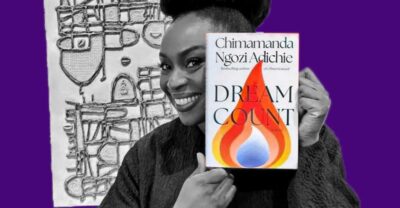At first glance, writing might seem like a solitary act—just you and a blank page. But in truth, every sentence we write carries the echo of the world we come from. Our cultures, our upbringings, our identities, even our language, they’re not just passive influences. They actively shape our stories, our style, and our voice.
Whether you’re an aspiring author finding your footing or a published author with years of experience, your cultural background is one of your greatest creative assets. Let’s unpack how and why.
What Do We Mean by “Culture and Background”?
Before we go too far, let’s define the terms.
When we talk about culture, we’re not just referring to national or ethnic identity—though that’s definitely part of it. Culture is broader. It includes language(s) you speak or grew up around, religion, spirituality, or philosophies you follow, the values and traditions passed down in your family, your socioeconomic background and education, the city, region, or community that raised you, your exposure to media, pop culture, and technology and the political or historical context you grew up in.
Background is a little more personal. It includes your lived experiences, the family dynamics you navigated, the dreams you had as a kid, the struggles you overcame, and the way all of those things continue to shape your perspective today.
Together, these form the lens through which you see the world and the lens through which you write.
How These Elements Influence Writing.
Whether you’re crafting a memoir or building a book from scratch, your culture and background are in the driver’s seat in both obvious and subtle ways.
Let’s break it down:
- Themes and Questions You Keep Coming Back To.
Ever notice how certain themes keep popping up in your work, even unintentionally? Maybe you write a lot about family, identity, leadership, love, power dynamics, or survival. These aren’t random—they reflect what matters to you, often rooted in your personal or cultural history.
For example; Authors who’ve lived or studied abroad (or those from immigrant families) write about dual identity and cultural hybridity and often explore what it means to belong in two worlds. This shows up in stories about returning home or navigating conflicting expectations.
Others may write about the tension between traditional values and contemporary life. This can take the form of characters questioning arranged marriages, ancestral customs, or gender roles, especially in urbanized, fast-changing cities.
For individuals that experienced economic instability to educational struggles, they often highlight characters who endure hardship with ingenuity and grit. These are stories of “hustle,” survival, and hope—even amidst chaos.
Authors who were raised in a rich spiritual environment would write themes around destiny, ancestral guidance, spiritual warfare, and divine justice, often weaving into both realistic and speculative fiction.
An author raised by a single parent might write stories rich in resilience, sacrifice, or unconventional family dynamics.
These recurring themes are not just quirks—they’re signals of deeper truths you’re processing and expressing through your craft.
- Voice, Language, and Rhythm
Your natural storytelling voice is deeply influenced by the way you grew up communicating. That includes, dialects or local expressions, storytelling traditions (oral, written, performative), multilingual fluency and cultural idioms, humor, or references.
These elements can make your voice distinctive, Think of how Nigerian writers incorporate Pidgin English, or how Caribbean authors write with musical, rhythmic prose that mirrors oral storytelling. Even in English, cultural rhythms shape the way sentences move and stories unfold.
Rather than “adjusting” these nuances to fit a default literary mold, lean into them. They’re part of what makes your writing yours.
- Worldbuilding and Setting
Even if you’re writing speculative fiction or fantasy, your cultural framework will influence how societies in your stories are organized. What your characters eat, wear, celebrate, or believe. How power, gender, and family are defined. The kinds of conflicts your world navigates.
Writers with strong cultural grounding often create richer, more immersive settings because they draw from lived or inherited knowledge. For example, authors like Tolkien, George R.R. Martin, and Leigh Bardugo build expansive fictional worlds, offering new possibilities to readers and writers alike.
For African authors, their ability to bring local, indigenous, and contemporary African realities to the page without dilution shows that African culture isn’t just worthy of literary attention—it’s fertile ground for layered, meaningful storytelling.
Chimamanda Ngozi Adichie, for example, is a master at crafting settings that feel lived-in and specific. In Half of a Yellow Sun, she doesn’t just tell the story of the Nigerian-Biafran War—she pulls readers into the kitchens, salons, and classrooms of 1960s Nigeria. You hear the voices, feel the heat, taste the food, and understand the social hierarchies. Her descriptions are vivid not because she’s trying to impress, but because she’s rooted in the world she’s writing about. That authenticity creates emotional depth and narrative power. Similarly, in Americanah, Adichie captures both Nigeria and the Nigerian immigrant experience in the U.S. with a keen sense of how place, race, class, and cultural context affect identity. The contrast between Lagos and Princeton, or a Lagos salon and a Brooklyn hair-braiding shop, are more than backdrops—they shape the characters’ journeys.
- Character Relationships and Emotional Landscape
Culture often dictates how we express (or suppress) emotion, how we relate to authority, what we consider “family,” and what’s considered taboo or sacred. These factors influence how your characters relate to each other and how your readers connect with them.
An author from a collectivist culture might write families as intricate social ecosystems, full of obligation and support. A writer from a more individualist society might focus on self-actualization and personal freedom. Neither is more correct—they’re simply different emotional blueprints.
Why This Matters—Especially Now
We’re living in a time when readers want diversity—not just in terms of representation on the page, but in the kinds of stories being told, and how they’re told. Authentic voices are more valuable than ever.
For aspiring authors, this is an invitation to you. You don’t need to water down your background to fit in. Let your lived experience shape your stories fully and unapologetically. Even the hyper-specific can become universal when told with heart.
For published authors, it’s a reminder that there’s always more to explore in your roots. As you grow personally and creatively, revisit where you came from with new eyes. Peel back more layers. You might find untapped veins of inspiration.
Your culture and background are not creative limitations but superpowers. They’re a deep well of stories, textures, conflicts, and connections that only you can bring to life. Even when you’re writing outside your direct experience, your perspective, shaped by who you are, adds meaning to every word you write.
So take a moment to reflect. What were the stories you heard growing up? What aspects of your culture still live in your daily life? What values have shaped the way you interpret the world?
Start there. The rest will follow.





